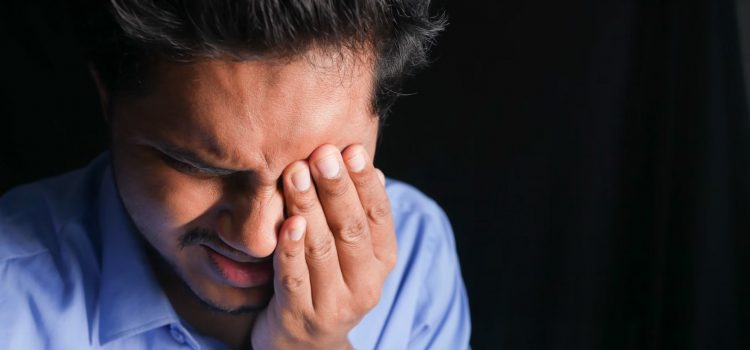

This article is an excerpt from the Shortform book guide to "Hard Times Create Strong Men" by Stefan Aarnio. Shortform has the world's best summaries and analyses of books you should be reading.
Like this article? Sign up for a free trial here.
Are men getting weaker? How has the widespread approval of feminism weakened masculine values?
According to Hard Times Create Strong Men by Stefan Aarnio, something tragic is happening to Western men. Aarnio believes that Western men are growing weak and abandoning traditional values.
Keep reading to learn if what Aarnio says is true.
Why Western Men Are Weak
Are men getting weaker? We’ll explain what went wrong with Western men. Namely, Aarnio argues that men have grown weak due to the cyclical nature of history, a weakening of traditional gender roles, and a turning away from Judeo-Christian religious values.
How has the cyclical nature of history contributed to weaker men? Aarnio contends that history operates in 80-year cycles, following the storyline of the poem by G. Michael Hopf that inspired the title of this book: “Hard times create strong men/Strong men create good times/Good times create weak men/Weak men create hard times.”
(Shortform note: There is some debate over the origins of the poem that inspired the title of Aarnio’s book. Most sources attribute it to Hopf’s Those Who Remain, a novel set in a post-apocalyptic version of the United States. However, some experts point out that the poem first appeared on the Internet in August 2016—four months before the publication of Hopf’s novel.)
From 1940-1960, American men faced hard times (such as World War II) and so grew strong. These strong men created good times from 1960-1980, as evidenced by the American manufacturing boom. But then, the widespread approval of feminism weakened men from 1980-2000. And since 2000, these weak men have been paving the way for hard times via their reactions to world events like the 2008 banking crisis—and hard times will begin anew in 2020.
| What Others Say About the Cyclical Nature of History Like Aarnio, The Fourth Turning authors William Strauss and Neil Howe propose that history operates in cycles. Specifically, they argue that history operates in saecula, or cycles of four Turnings, with each turning lasting between 15-25 years. But these cycles aren’t dictated by whether men are weak or strong; rather, certain generations predictably develop certain characteristics depending on the circumstances of their birth, and so they shape the Turnings in predictable ways. The First Turning is a High: It comes after a great turmoil is resolved and includes the installation of a new social order that prioritizes collective value. The Second Turning is the Awakening; people pull away from the social order imposed during the High and start to reject collective values in favor of individual rights. The Third Turning is an Unraveling; society embraces the new order put in place by the Awakening, and people become more distrustful of governments and grow more passionate about and extreme in their beliefs. The Fourth Turning is a Crisis: A major event or series of events creates a society-wide crisis, and people respond in a way that creates societal upheaval. Strauss and Howe suggest that the most recent saecula began not in 1940 but in 1946, after the end of World War II. The Awakening began in 1964 and was not a peaceful manufacturing boom; rather, people were starting to lose confidence in the massive corporations that previously brought economic success. Additionally, this was the period during which no-fault divorces were legalized, which, given Aarnio’s argument that divorce significantly weakened men (which we’ll discuss later), suggests that this was the period during which feminism began to weaken men. The Unraveling began in 1984, with ineffective leaders and intense public debate over issues such as diversity and religion. Strauss and Howe, who published their book in 1997, did not clearly delineate when the Crisis would begin. However, in 2020, Howe identified the 2008 financial crisis as the beginning of the Crisis. In their book, Howe and Strauss accurately predicted certain events that would pass in the Crisis, including a terrorist attack by a foreign group purporting to have nuclear weapons (as happened on September 11, 2001) and the spread of a new, highly contagious virus (such as the COVID-19 pandemic). |
How the Decline of the Family Has Weakened Men
Aarnio also argues that men have grown weak due to the decline of the traditional family unit. Aarnio asserts that today’s 50% divorce rate is partly due to feminism. We naturally like whoever is opposite us on the energy spectrum; someone with flowing feminine energy is attracted to someone with strong masculine energy (and vice versa). Since women traditionally spent their days in a domestic role, they had high feminine energy—and so were naturally attracted to their husbands who worked outside the home and so had high masculine energy.
But thanks to feminism, women started working. Women who work have higher masculine energy, so they’re more likely to lose their attraction to their husbands and divorce them (since their energies are no longer opposite). Moreover, Aarnio asserts that since men and women are now ostensibly equal, they don’t need each other—and so are less likely to get married in the first place.
Aarnio adds that government policies and changing social norms have also contributed to the decline of marriage. Women are no longer reliant on their husbands for survival; now, they can easily divorce him and live not just on his assets but those of the government via public assistance programs. Not only does this encourage divorce, it discourages men from getting married because they’re worried that their women will steal their assets. Moreover, people no longer turn to religious leaders or long-married couples for marital advice; instead, they turn to their single friends, who often encourage divorce.
(Shortform note: Some experts agree with Aarnio that American government policies—specifically, the 1996 introduction of Temporary Assistance for Needy Families (TANF)—have contributed to the decline of marriage. However, they don’t state that women are incentivized to divorce their husbands or that men are discouraged from getting married because of the potential financial risk involved. Rather, they point out that TANF discouraged low-income couples from getting married by penalizing them financially—married couples received fewer welfare benefits than single people. Experts also agree with Aarnio that a couple’s social circle raises their risk of divorce, but studies indicate that the risk stems from having divorced friends, not single friends.)
This decline of marriage has weakened men, Aarnio explains, by robbing them of their fathers, who play an irreplaceable role in their sons’ upbringing. Boys who grow up without a father miss out on the opportunity to learn about male-female relationships (by watching their parents) and so are more likely to struggle with their sexuality. They don’t learn how to be masculine and instead are forced to learn about it from other sources (like Aarnio’s book).
Moreover, in many households, fathers are the disciplinarians who punish sons for their bad behavior. Aarnio argues that without dads around, sons grow used to getting their way without any consequences and so are more likely to break the law and land in legal trouble.
How the Decline of Judeo-Christian Values Has Weakened Men
Finally, Aarnio asserts that Western men have grown weak due to a decline in traditional Judeo-Christian values, such as the promotion of prosperity and family. Back when schools taught Judeo-Christian ideals, men were religious and so able to draw upon the power of the spiritual realm. Since they could access not just their own intelligence and creativity but that of the spiritual realm, they were able to grow more successful than they otherwise would have. But now, schools promote atheism—and atheist men who can’t access the spiritual realm are less successful and weaker as a result.

———End of Preview———
Like what you just read? Read the rest of the world's best book summary and analysis of Stefan Aarnio's "Hard Times Create Strong Men" at Shortform.
Here's what you'll find in our full Hard Times Create Strong Men summary:
- Why modern Western men are weak, leading to civilization decline
- How to be a strong man at work and in relationships
- Why pickup artistry doesn't lead to fulfilling relationships






